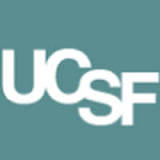Histoblood Group Antigens as a Risk Factor of Asthma
| Status: | Completed |
|---|---|
| Conditions: | Asthma, Pulmonary |
| Therapuetic Areas: | Pulmonary / Respiratory Diseases |
| Healthy: | No |
| Age Range: | Any |
| Updated: | 2/4/2013 |
| Start Date: | July 2005 |
| End Date: | December 2009 |
| Contact: | John V. Fahy |
| Email: | john.fahy@ucsf.edu |
Histoblood Group Antigens, Viruses and Asthma
This study will evaluate the link between blood group antigens and asthma exacerbations.
BACKGROUND:
The purpose of this study is to explore the role of histoblood group antigens in
virus-induced asthma exacerbations. These antigens (ABH and Lewis) decorate O- and N-linked
glycans on mucin and epithelial glycoproteins, respectively. Glycan synthesis involves
glycosyltransferases, including fucosyltransferases (FUT) encoded by FUT genes. Glycan
degradation involves glycosidases, including fucosidase. "Secretor status" is defined by
FUT2 activity in epithelial cells, which forms the H antigen and allows subsequent synthesis
and secretion of A, B, and Lewis B antigens. In preliminary studies it was found that: 1)
asthmatic patients with frequent exacerbations are more likely than non-exacerbated patients
to be secretors; 2) secretors report more frequently that a cold causes asthma; and 3)
sputum in stable asthma has abnormally high fucosidase activity. These findings suggest that
airway glycans are subjected to the following two competing homoeostatic influences: 1) the
diversity and activity of glycosyltransferases within cells that synthesize glycans; and 2)
the diversity and activity of glycosidases that turn over and remodel glycans in the airway
lumen. This study will test the hypothesis that secretor positive asthmatic patients are
susceptible to virus-induced asthma exacerbation and that abnormal glycosidase activity in
secretions modifies the glycan coat and promotes virus-induced exacerbation.
DESIGN NARRATIVE:
Secretor status will be studied in order to determine whether it is a risk factor for asthma
exacerbations precipitated by viruses. Preliminary studies suggest that secretor positive
asthmatics are prone to asthma exacerbations and that asthmatic patients have abnormal
glycosidase activity in their airway secretions. This study will explore these findings
further in the following two ways: 1) a case-control study will compare secretor status and
frequency of viral airway infection in 50 asthmatic patients hospitalized for management of
acute severe asthma to 50 asthmatic subjects in the outpatient setting without a history of
severe asthma exacerbation. Sputum samples or tracheal aspirates (from intubated patients)
will be collected from all patients. In these samples, DNA will be used as a microarray to
detect viruses; and 2) epithelial brushings and bronchial biopsies from a tissue bank will
be used to establish the relationship between secretor status (erythrocyte Lea and Leb
phenotyping) and airway epithelial cell activity of FUT genes (real time RT-PCR), and
expression of Lea, Leb, A, B, and H antigens (immunohistochemistry).
Inclusion Criteria:
- Diagnosis of asthma, as confirmed by methacholine responsiveness less than 8 mg/mL
- History of asthma exacerbation in the 2 years prior to study entry requiring
treatment with oral corticosteroids
Exclusion Criteria:
- Cigarette smoking in the 10 years prior to study entry or total pack per year history
greater than 10
- History of asthma exacerbations requiring treatment with oral corticosteroids since
age 12 (control group)
We found this trial at
1
site
500 Parnassus Ave
San Francisco, California 94110
San Francisco, California 94110
(415) 476-9000

University of California, San Francisco UCSF's clinical enterprise is recognized nationally for its leading health...
Click here to add this to my saved trials